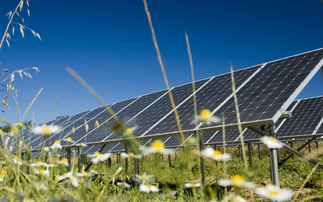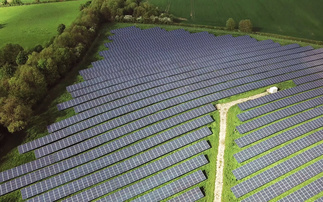Evo Energy says firms should move fast to take advantage of more attractive solar incentives
From 1 April homes will need an energy performance certificate (EPC) at grade D or above to qualify for higher feed-in tariff rates.
On 9 February the Department of Energy and Climate Change (DECC) released its comprehensive review of feed-in tariffs (FITs). Phase 1 of the review confirmed the new energy-efficiency requirements to be introduced from 1 April. Phase 2 focused on making the scheme sustainable for the long term, proposing to link future tariff reductions to the rate at which the industry grows.
Making the grade
The good news is that, for many homes, an energy performance certificate at grade D is a lot more achievable than grade C, which was originally put forward.
DECC states: "We have listened carefully to concerns raised in response to the consultation and have decided that the energy efficiency requirement should be based on an Energy Performance Certificate (EPC) rating of level D or above, not level C or any other option as previously mooted."
The rating will apply to both homes and non-domestic buildings installing and registering a PV system from 1 April 2012. Homes that fail to qualify will receive the much lower tariff of 9p per kWh - unless they can get their install completed before the 1 April deadline.
A gradual reduction for FITs
In the last quarter of 2011, the number of new solar PV installs soared as thousands rushed to cash in on the 43.3p tariff before it was whipped away on 12 December. It seems DECC has learned from this episode and is looking to put a more sustainable - and less damaging - funding system in place. According to climate change minister Greg Barker: "Instead of a scheme for the few, the new improved scheme will deliver for the many."
In the second phase of the 9 February review, DECC suggests flexing the FIT budget depending on the level of uptake, so the more systems are installed over one set period, the deeper the tariff cut for the next.
After 1 July the review suggests the tariff may fall to between 13.6p-16.5p per kWh, with further cuts expected in the succeeding months.
Tom Craig heads up the marketing team at one of the UK's most successful installers of solar panels - Nottingham-based Evo Energy, and says the new measures should give people an incentive to install sooner rather than later. "We need to remember the rates are subject to consultation at this stage. But for now, the message is clear - those thinking about installing PV should make their move sooner rather than later. For those who install before April, you'll also be spared the extra costs that may come with reaching EPC grade D."
This sponsored content was provided by Evo Energy





